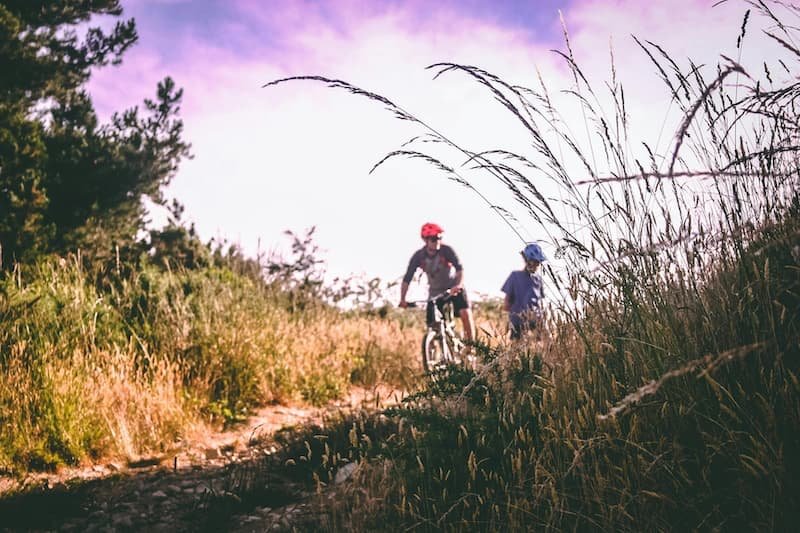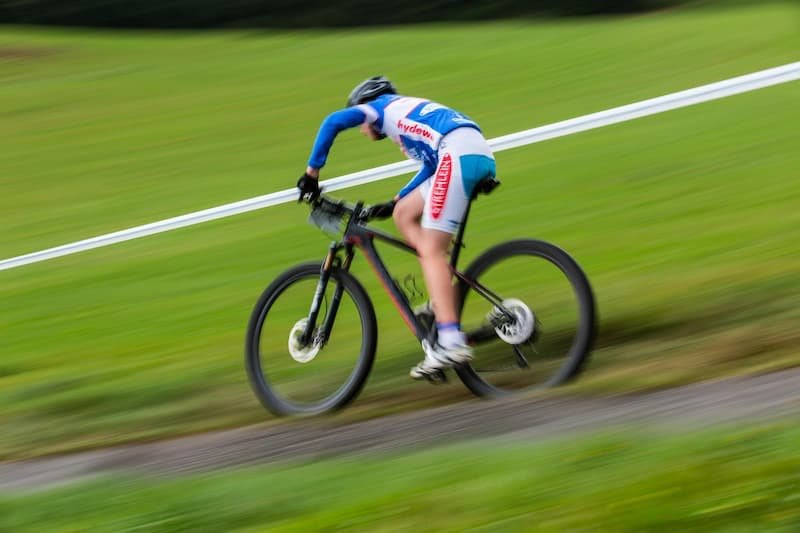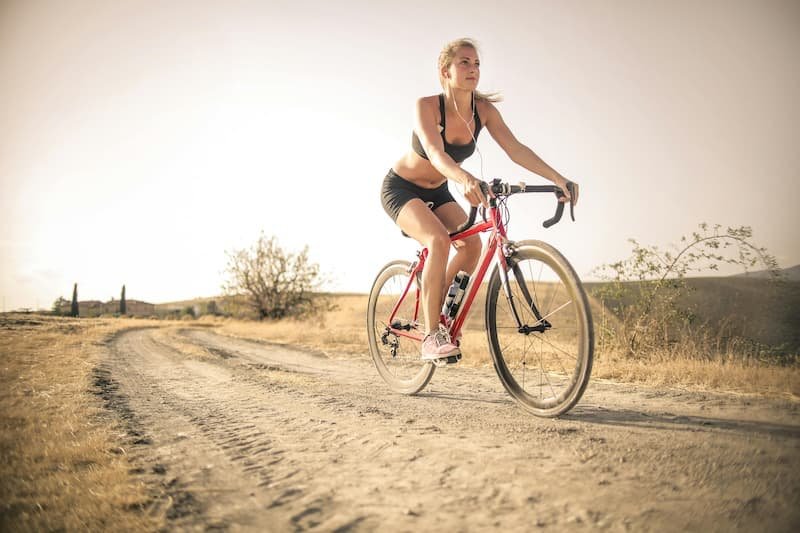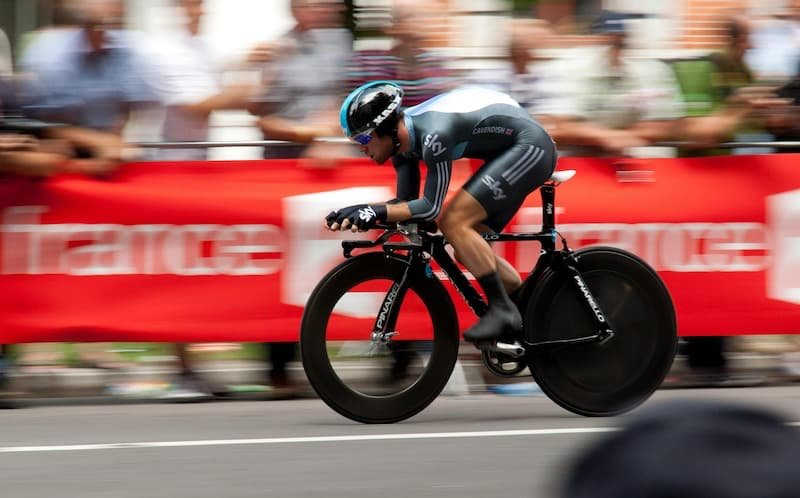
 Nick Pelios
Freediver, Creator
Nick Pelios
Freediver, Creator

 Nick Pelios
Freediver, Creator
Nick Pelios
Freediver, Creator
Cycling and freediving appear as unlikely companions. One is an aerobic, land-based endurance sport, pushing physical and mental boundaries along winding roads and challenging terrains. The other is a silent, underwater pursuit, demanding unparalleled breath control, mental serenity, and a profound understanding of one’s physiological limits. Yet, beneath the apparent contrast, cycling holds a surprising potential to elevate your freediving performance, enriching your capabilities underwater through enhanced aerobic conditioning, CO₂ tolerance, and recovery.
At the core of cycling lies aerobic conditioning, primarily characterized by improvements in VO₂ max—the maximal volume of oxygen the body can consume during intense exercise. A high VO₂ max indicates exceptional cardiovascular efficiency, allowing oxygen to reach muscle tissues rapidly and sustain performance longer.
Freediving heavily relies on efficient oxygen management. A well-conditioned cardiovascular system can transport oxygen effectively and support metabolic processes even in prolonged states of apnea. This means enhanced aerobic fitness directly correlates to longer breath-holds, deeper dives, and overall improved underwater performance.

Research consistently highlights cycling as one of the most effective means to increase VO₂ max. Studies published in the Journal of Applied Physiology have demonstrated that cycling training, especially interval training at high intensities (HIIT), can significantly boost VO₂ max levels by up to 10-15% within weeks. This adaptation occurs as the heart muscle strengthens, the volume of blood pumped per beat (stroke volume) increases, and the efficiency of oxygen extraction by the muscles is enhanced.
For freedivers, this translates to increased oxygen availability, particularly important during static apnea or extended dive times. An elevated VO₂ max allows a diver to delay the onset of hypoxic symptoms, ensuring longer, safer dives and a greater margin for error in challenging conditions.
Another significant crossover between cycling and freediving lies in CO₂ tolerance, the body’s capacity to handle elevated levels of carbon dioxide. While freedivers specifically train CO₂ tolerance through breath-hold tables and apnea training, cycling naturally improves this capacity as well.
During sustained cycling efforts, particularly at moderate to high intensities, muscles produce significant amounts of carbon dioxide. Regular cycling teaches the body to efficiently manage this buildup, improving respiratory mechanics, ventilation control, and reducing the sensation of breathlessness. Over time, cyclists develop increased tolerance to higher CO₂ concentrations, a skill directly transferable to freediving.
Enhanced CO₂ tolerance means the urge to breathe during a dive is reduced or delayed, enabling freedivers to remain calm and extend their dives comfortably. The sensation of breathlessness is managed more effectively, allowing divers to maintain composure and conserve oxygen underwater.

Efficient recovery between dives is critical for freediving safety and performance. Diving repeatedly with minimal surface intervals requires a robust cardiovascular system capable of quickly clearing metabolic waste and replenishing oxygen stores.
Cycling improves circulation, strengthens heart muscle, and enhances capillary density. This results in quicker lactate clearance and faster recovery post-exercise or between physical efforts. Freedivers who regularly engage in cycling often report shorter recovery times between dives, translating to improved diving efficiency and safer practices during extended dive sessions.
Cycling’s ability to optimize recovery can substantially benefit freedivers who participate in competitions or multi-day dive sessions. Rapid recovery enables better performance over consecutive dives, maintaining focus, physical readiness, and reducing the cumulative fatigue that could compromise safety.

Freediving demands acute mental clarity and calmness under pressure. Psychological composure, stress management, and the ability to remain relaxed despite increasing physiological stressors are essential skills underwater.
Cycling provides substantial psychological benefits that align with these demands. Regular cycling, particularly endurance and long-distance rides, fosters mental resilience and the ability to manage discomfort effectively. Cyclists frequently face fatigue, environmental stressors, and mental barriers, yet develop the ability to maintain focus and composure under these conditions.
Freedivers can harness this psychological conditioning. Enhanced stress management and mental discipline gained from cycling transfers directly to the underwater environment, improving overall diving performance and safety. Cyclists often practice mindfulness and breath control techniques during rides, skills highly beneficial for freediving.
Integrating cycling into a freediving training regime should be approached strategically. A balanced training plan maximizes benefits while avoiding potential overtraining or fatigue.
Freedivers might consider cycling sessions 2-3 times per week, combining endurance rides at moderate intensities with periodic high-intensity intervals. Endurance rides (Zone 2 training) build aerobic capacity, improve fat metabolism, and enhance cardiovascular efficiency. High-intensity interval sessions boost VO₂ max and CO₂ tolerance rapidly, producing physiological adaptations that directly enhance diving performance.
Using heart rate monitors and training software allows freedivers to track progress accurately. Cyclists who monitor VO₂ max and lactate thresholds gain valuable insights into their aerobic improvements, guiding adjustments in training intensity and duration to optimize freediving results.

Athletes successfully combining cycling and freediving report tangible improvements in dive performance. Competitive freedivers note that structured cycling has extended their dive times, increased their comfort at depth, and improved overall physical conditioning. The enhanced recovery between dives notably benefits freedivers during competitions, where multiple dives occur daily.
For instance, cross-training freedivers who implement structured cycling programs, including moderate endurance and targeted high-intensity interval sessions, have reported improvements in apnea duration by 10-20% within months of consistent practice. This real-world validation underscores cycling’s practical benefits for freediving performance.

While cycling holds significant potential benefits, freedivers must remain cautious not to compromise their dive-specific training. Overtraining through excessive cycling might negatively impact freediving performance by inducing fatigue or muscular soreness.
A balanced approach is essential. Freedivers should ensure adequate rest and recovery between cycling and diving sessions. Implementing low-impact, low-intensity cycling sessions during peak freediving training periods helps maintain aerobic fitness without risking overtraining. Periodizing training plans effectively ensures peak performance during critical diving events or competitions.

Cycling presents a unique, scientifically validated opportunity for freedivers aiming to enhance their performance. Improvements in aerobic conditioning, CO₂ tolerance, recovery, and psychological resilience provide direct and practical benefits underwater. Integrating cycling thoughtfully into freediving training programs offers a robust, complementary training strategy.
The journey toward combining these disciplines requires thoughtful planning, continuous monitoring, and adaptability to individual physiological responses. However, the rewards of enhanced performance, increased safety margins, and improved overall fitness justify the investment. Freedivers who embrace cycling as a complementary discipline open new avenues for physical and mental growth, pushing their underwater boundaries further than ever before.